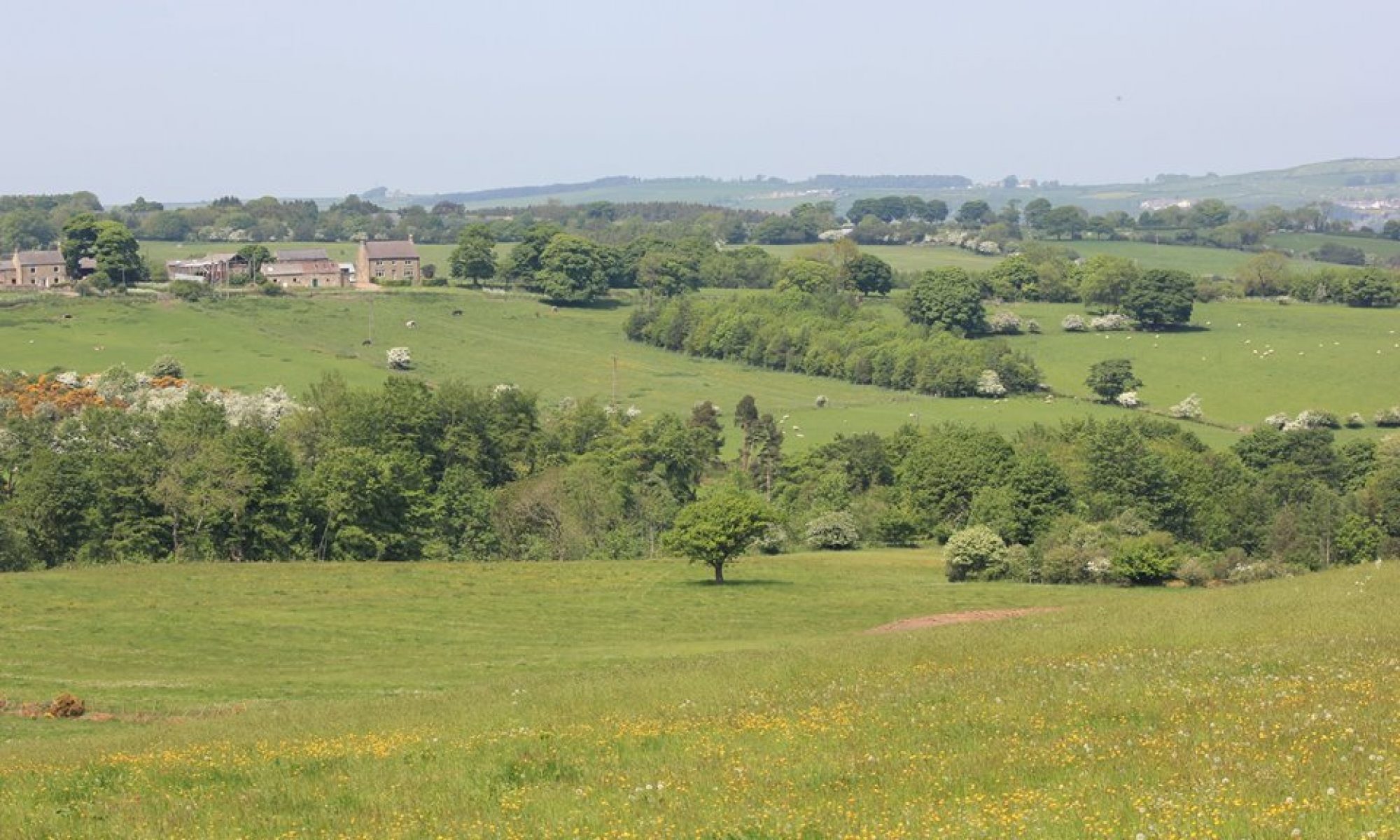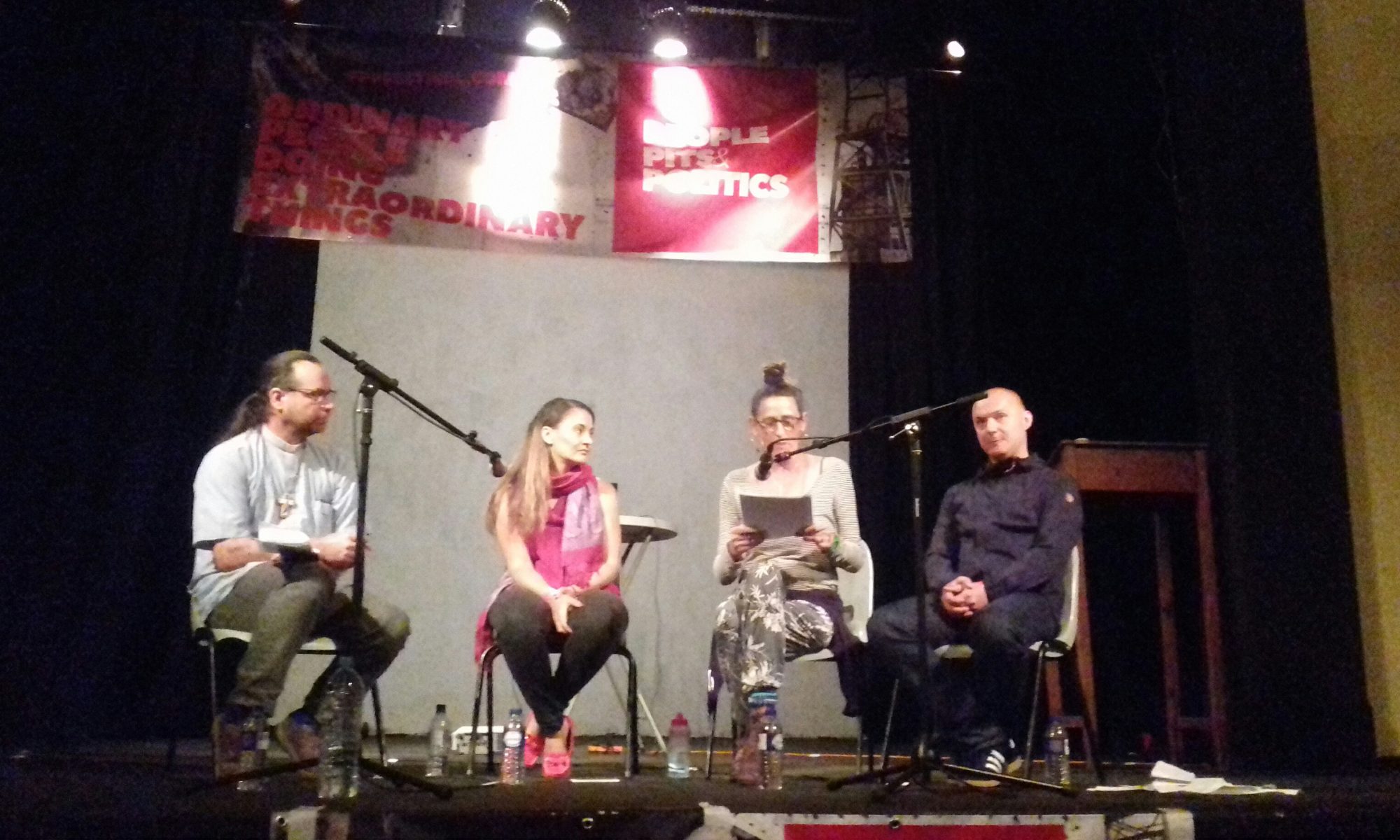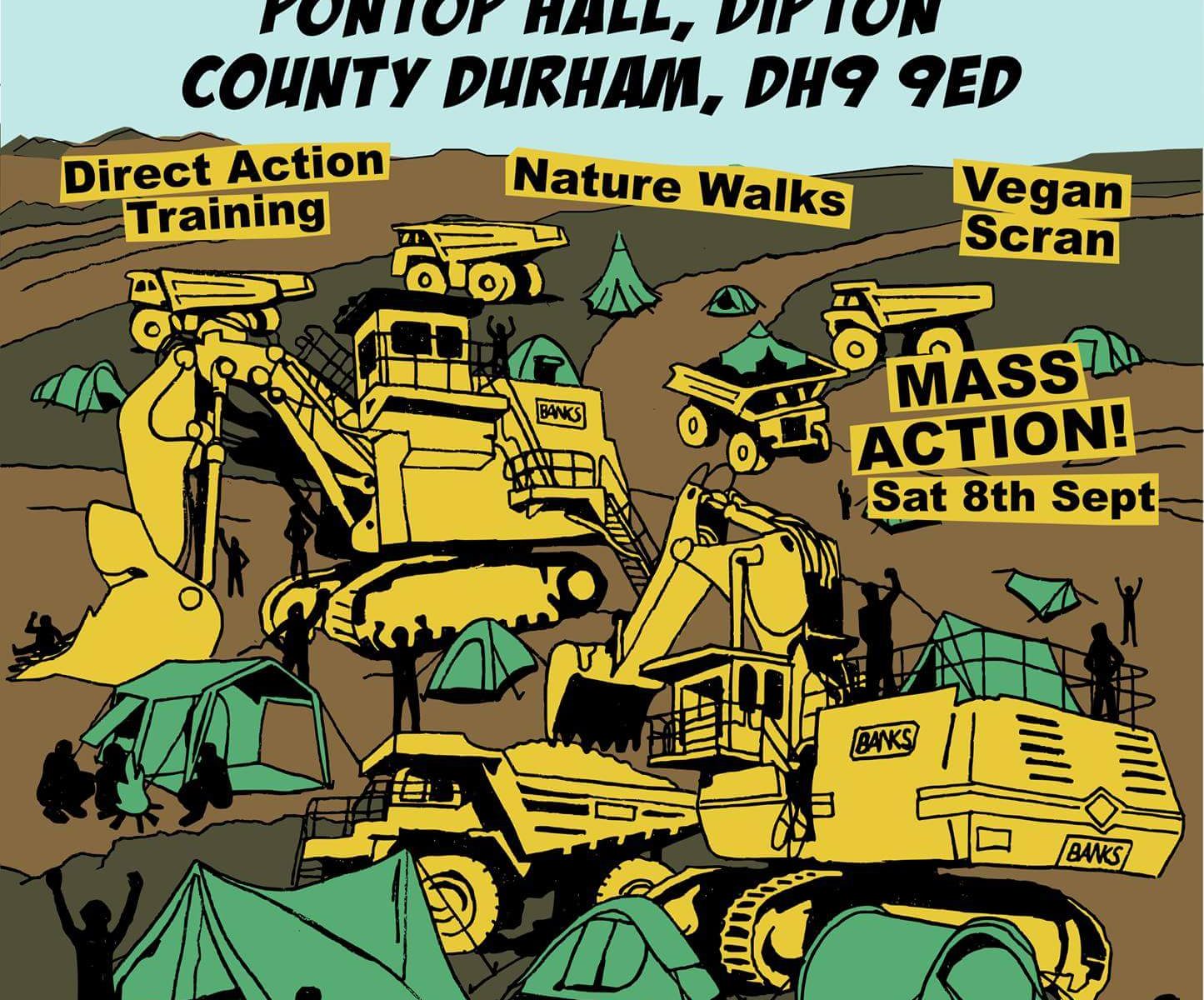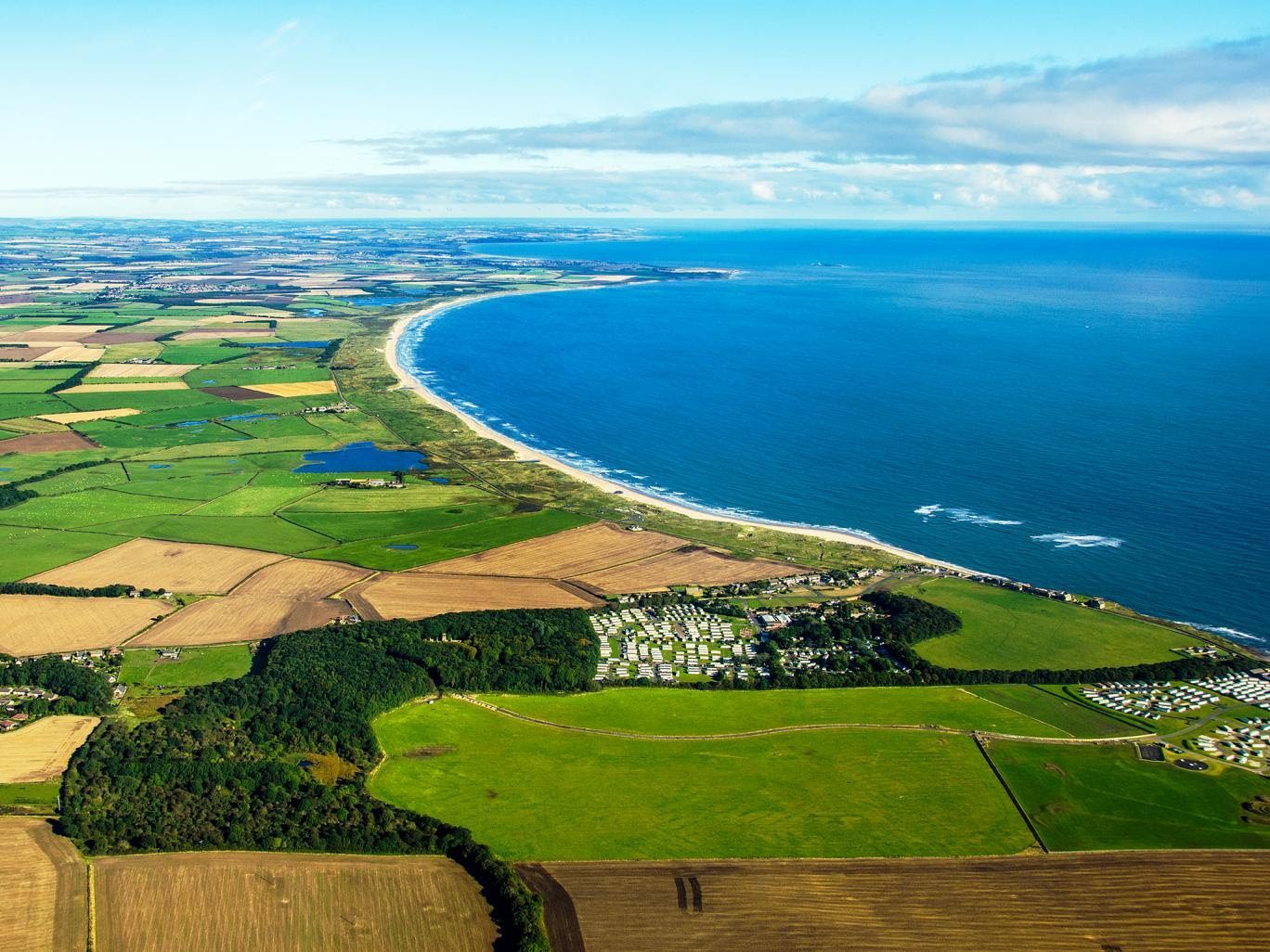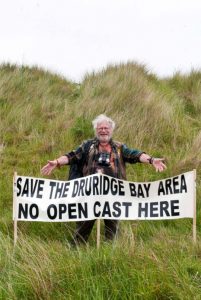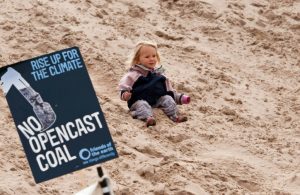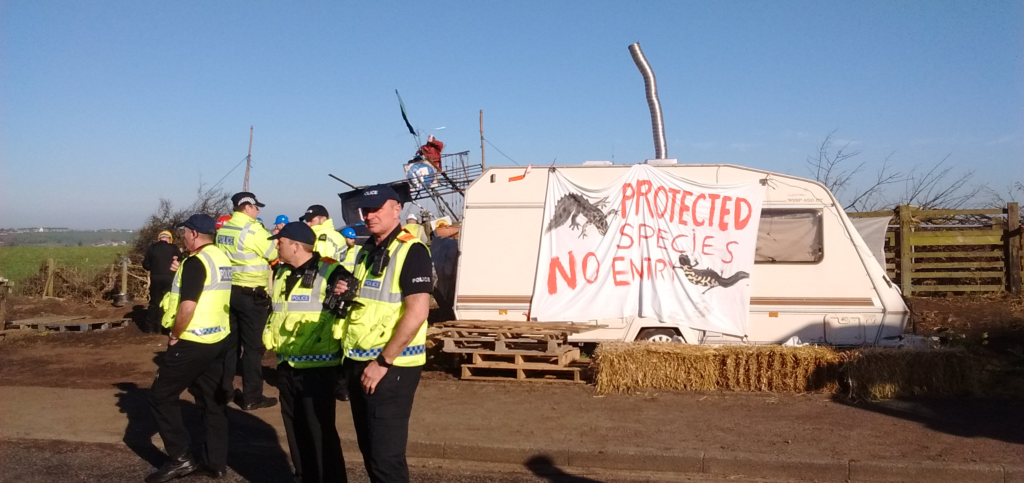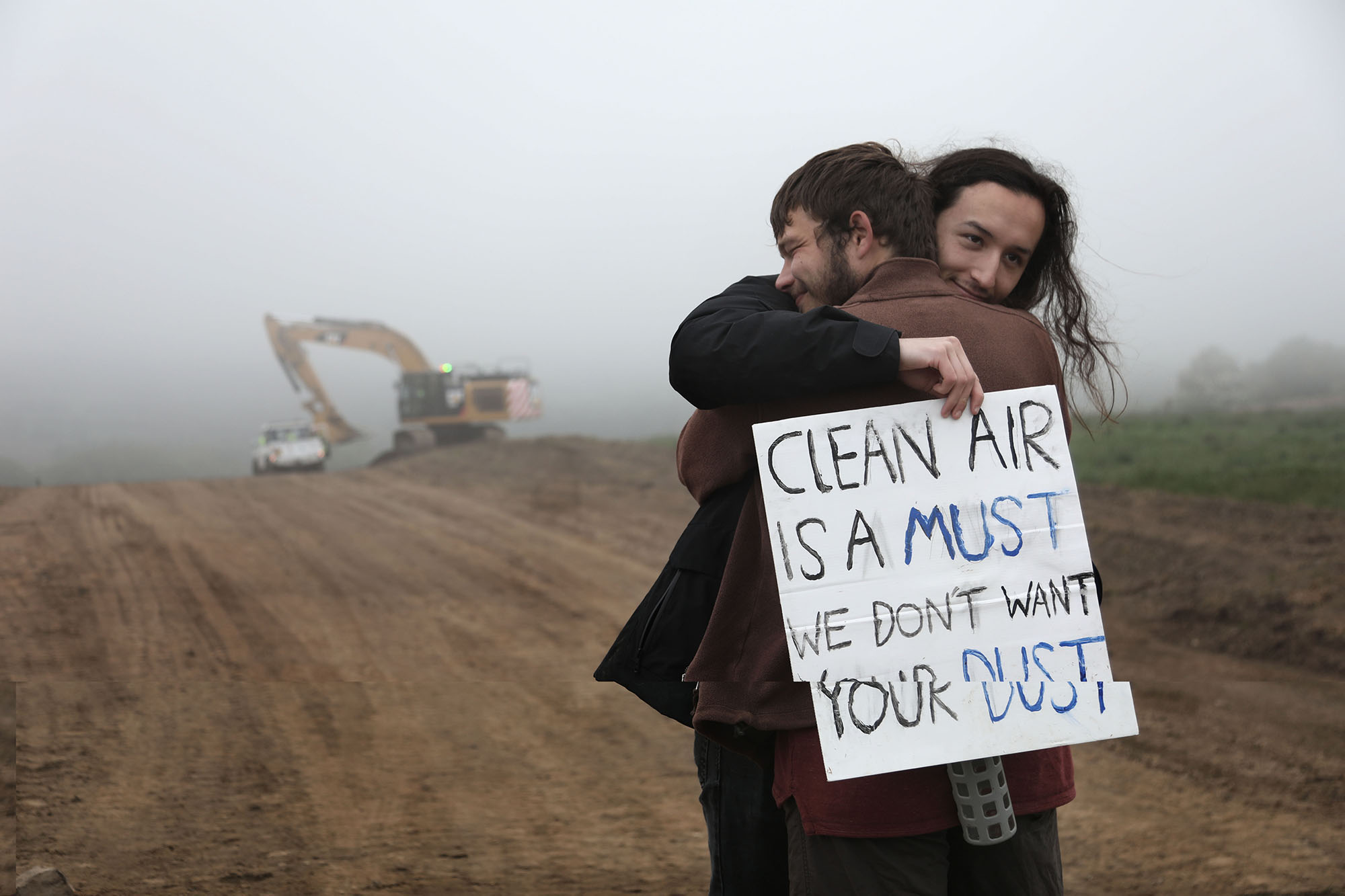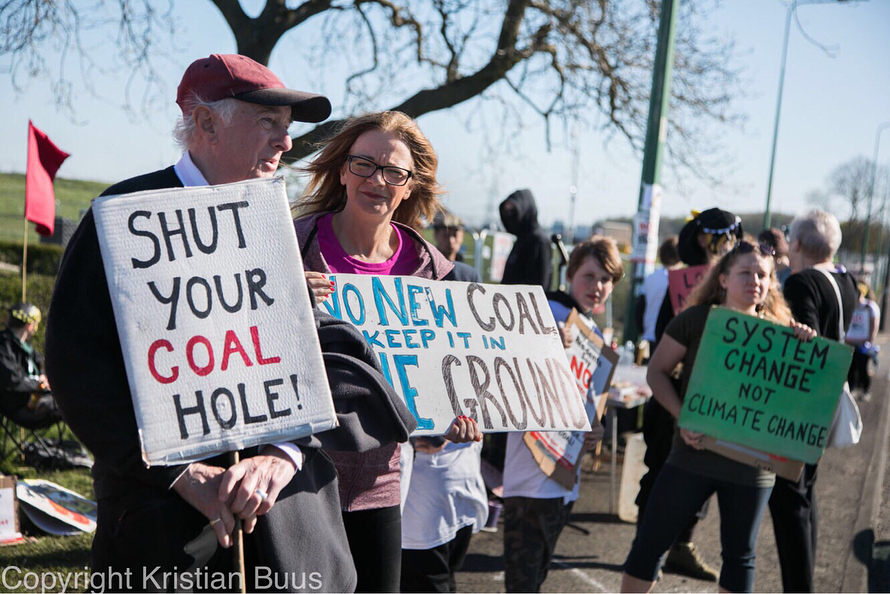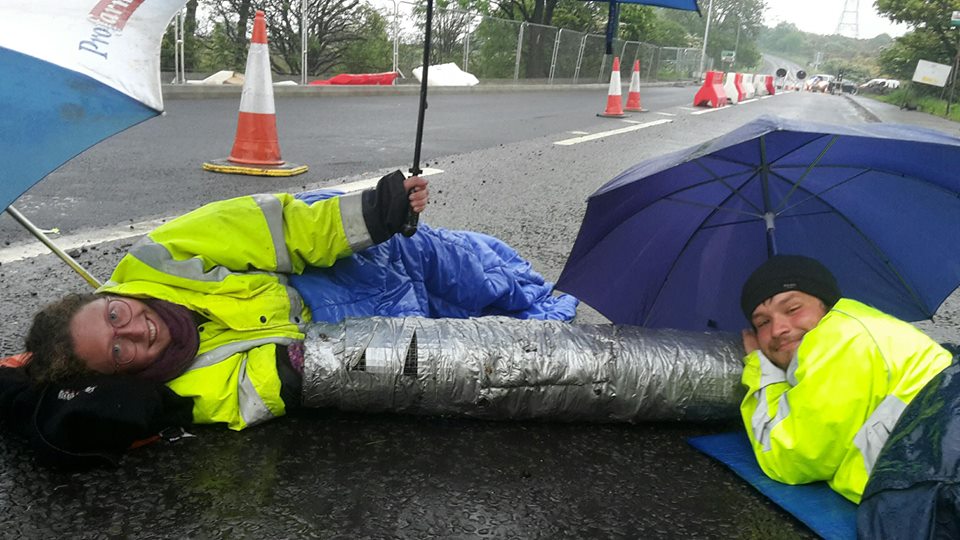Two weeks ago, members of the Campaign to Protect Pont Valley went to the People Pits and Politics Festival in Durham. It was great to see climate change high on the agenda with One Million Climate Jobs (panel); Coal, Capitalism and Climate (panel); Just Transition (film); and in the music of Billy Bragg and North East Socialist Singers.
One Million Climate Jobs offers a message of hope from speakers proposing a solution to climate change that also addresses our socio-economic crisis. The One Million Climate Jobs report [] proposes the introduction of one million state-employed, secure, skilled jobs that would directly cut emissions of greenhouse gases. They see communities and workers dignified in long-term, sustainable industries. The proposal is endorsed by 8 national unions, including PCS and UNITE who were both represented at the panel. Clive Lewis, (MP and Shadow minister for energy & industrial strategy), also on the panel, was clearly excited at the potential for these jobs to oversee a transformation of society by changing who owns our energy and the potential for community ownership.
To be most impactful, these climate jobs should be introduced in areas where fossil fuel industries are proposed or active. They say the climate jobs will be much more numerous, for example; in Salford, Fracking is expected to create 420 jobs, whilst climate jobs would be at 4,500. Willie Black, vice-chair of Edinburgh UNITE, who chaired the screening and discussion of Just Transition, highlighted the integral role workers and strong trade unions will play in the success of a just transition away from fossil fuels. It will require a return in strength of trade unions, so they can demand green and dignified jobs, rather than defend every single job because it is a job. Willie Black hopes to see the trade unions take on the slogan – THERE ARE NO JOBS ON A DEAD PLANET. He sees a future of those who are “green trade unionists” and those who are “dead planet trade unionists”.
The trade unionists on the One Million Climate Jobs panel, made specific reference to the importance of continued direct action against the fossil fuel industry. They see trade union strength, the climate jobs and the attack on the fossil fuel industry through direct action and community resistance, all as essential parts of moving us to a sustainable future. We here at Pont Valley will continue our resistance to opencast and hopefully trade unionists can start talking about climate jobs around local communities to us. We too want people in this area to have dignified lives, but that doesn’t come from a 3-year opencast coal extraction, it comes from community-owned industries that help our planet.
Although there are trade unions working towards this vision, there are trade unionists who have felt disregarded and disrespected by ‘the environmental movement’. For a transition to be just, those affected by it must be at the table, for this reason the dialogue between two miners, one representing Durham Miners Association, and one, Orgreave Truth and Justice Campaign, and a trade unionist supporting a move from the fossil fuel industry, and Coal Action Network, in the Coal, Capitalism and Climate talk was crucial.
The conversation highlighted some tensions. The miners explained that their identity was tied to coal and an attack on coal was an attack on them; that some of our language was insulting to them. But they also repeated [] their position against opencast coal extraction and support for the Pont Valley Campaign. They said opencast extraction destroys the landscapes they have loved with the deepest integrity and cherished on their days outside the pits. That it doesn’t provide jobs and rather than working in the communities’ interest, works in the interest of the companies and the fat cats.
Moreover, the session highlighted how those ‘against coal’ and those ‘for coal’ are united in our values of community interests before profit – united, as the speaker from Orgreave Truth and Justice Campaign highlighted, against capitalism. The Campaign to Protect Pont Valley and the struggle of the miners were and are, a fight for communities to self-determine, and not be crushed by private interests.
Our similarities are highlighted by our mutual reception of state and corporate violence. This was highlighted in the session, Facing the State, where Tracey G a representative from both the local community at Pont Valley, Chris Howsam, a self-proclaimed eco-anarchist reverend who has been active both in environmental and peace movements, and Joe Rollins from the Orgreave Truth and Justice Campaign, shared their experiences of state and corporate violence used to intimidate communities saying no. Orgreaves saw police stampeding kettled miners and assaulting them viciously with batons. The environmental movement has been attacked with undercover policing with infiltration levels at impregnating activists. Though Pont Valley hasn’t seen anything near that physical violence, the levels of intimidation, wrongful threats of arrest and wrongful arrests is the state using its muscles in face of resistance. One person was arrested for breach of the peace, whilst writing in their notebook at a peaceful Saturday demo; they were held for over 50 hours. Peaceful protests have been given extremely tight, authoritarian boundaries, policed heavily with a pro-active arresting policy. A local street was surveilled by private security and police entered the protectors camp frequently to intimidate, despite clear indication they were not welcome by the protectors or the landowner. When you are a threat to power, corporate or state, you will feel that control the miners felt and we here at Pont Valley also feel.
We are so pleased to have the support of DMA as a campaign and were honored to be marching in the Durham Miners Gala on Saturday. We were really happy to see a wider conversation happening between some of our wider views around climate change and the future of coal and differences being bridged between miners and people from the ‘environmental movement’. We hope that what bonds us continues to allow for more future moments like these and that are differences continue to have respectful space for dialogue.
